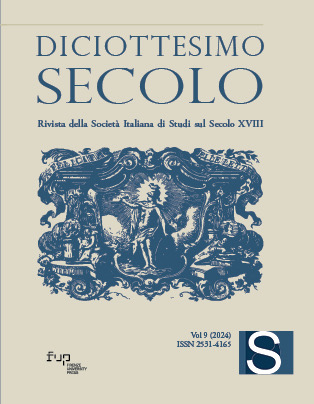Translating Orientalism. Louis-Mathieu Langlès as editor and translator of English literature between Oriental studies, commerce, and popularisation
Published 2024-10-07
Keywords
- Orientalism,
- Travel literature,
- British Empire,
- Paris,
- History of Translation
How to Cite
Copyright (c) 2024 Emanuele Giusti

This work is licensed under a Creative Commons Attribution 4.0 International License.
Abstract
This article delves into the translation and editing work of Louis-Mathieu Langlès (1764-1824), a significant figure in French Oriental studies during the late eighteenth and early nineteenth centuries. By examining Langlès’ translations of British literature about Asia, the analysis underscores two interrelated strategies shaping his work. The first strategy involved the dissemination of knowledge about Asia through translations shaped by both a literalist approach to the text and intensive editing practices. These practices resulted in the incorporation of extensive footnotes and additions that served both informative and domesticating functions and highlighted Langlès’ agency as a mediator of knowledge. The second strategy centres on Langlès’ reform project for the French system of teaching and learning Asiatic languages, resulting in the establishment of the École spéciale des langues orientales vivantes in 1795. This strategy is strongly connected with his translation work as it reflects Langlès’ pragmatic vision of Oriental studies as based on the British example, particularly the scholarly activities of individuals working for the East India Company. His translations, therefore, were not mere acts of appropriation but both embodied and encouraged ‘emulation’, allowing us to reveal the interplay of scholarly admiration and political competition and to uncover a distinct strand of Anglophilia within the broader context of early French Oriental studies.

